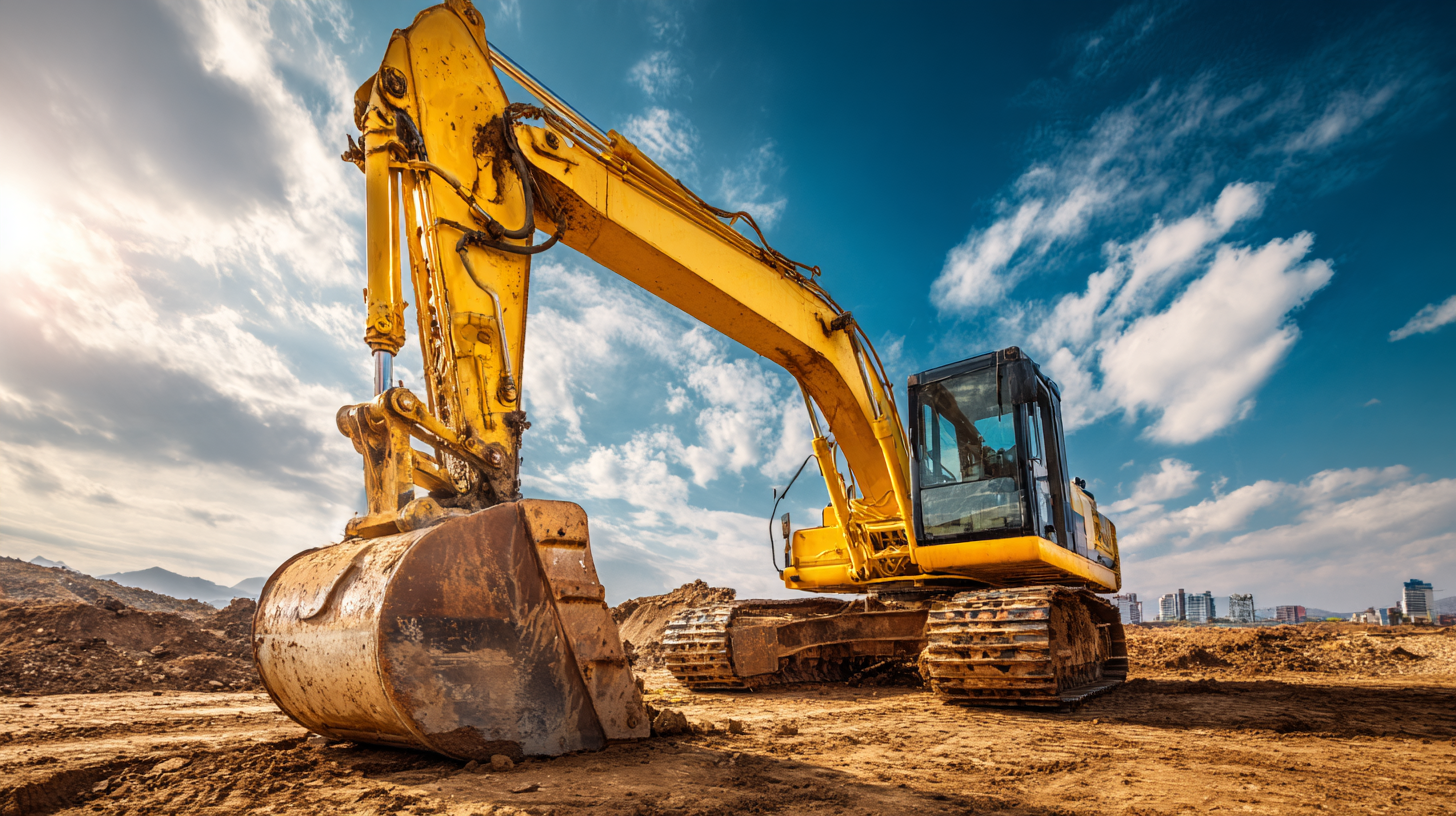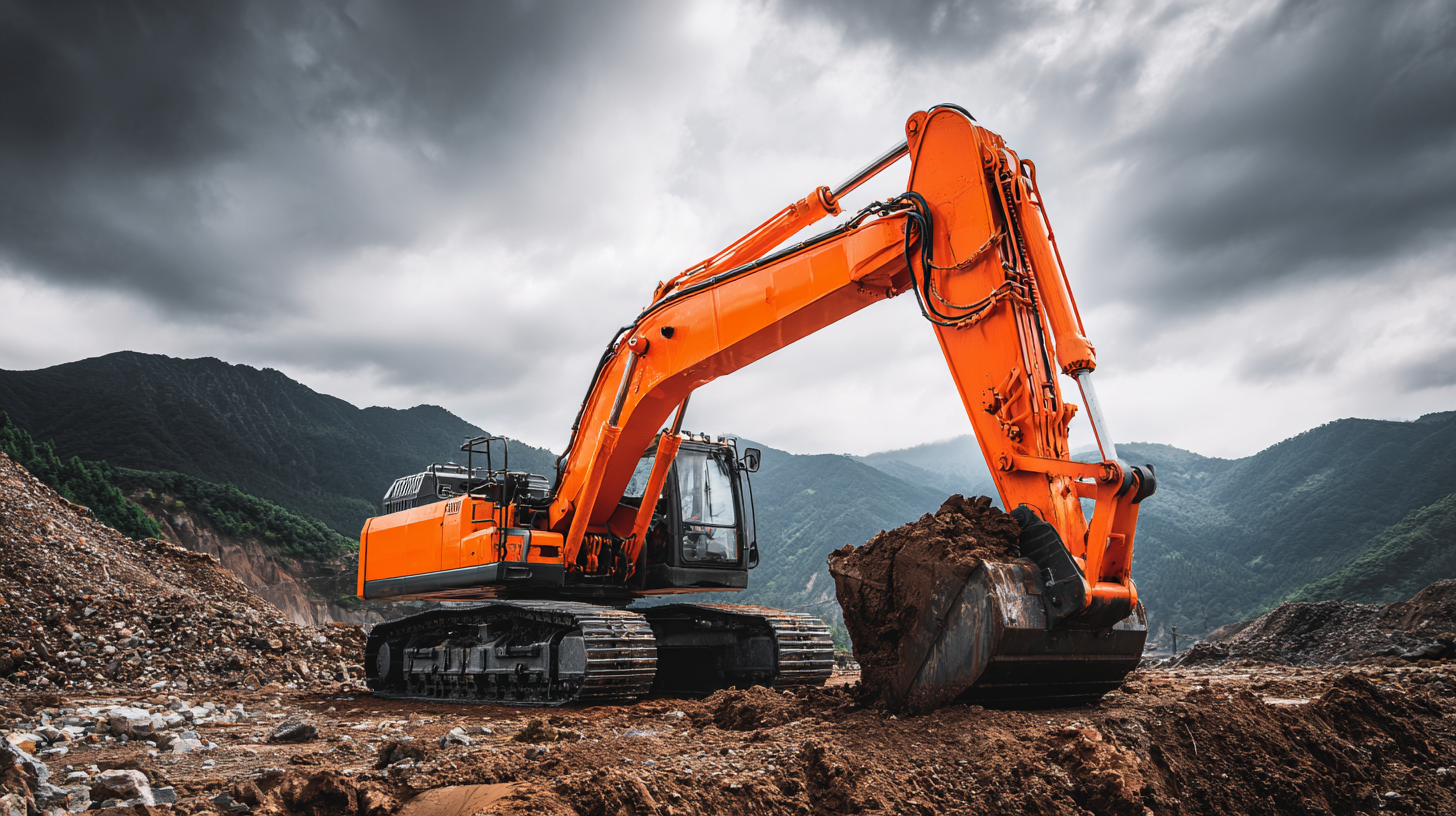Leave Your Message
- Phone
- E-mail
- Whatsapp
In the ever-evolving landscape of global sourcing, the importance of selecting the right local excavators cannot be overstated. According to a recent report by the International Federation of Robotics, the construction industry is set to witness a growth rate of 8% annually over the next five years, driven primarily by advancements in machinery and local sourcing strategies. As businesses expand their operations globally, partnering with local excavators ensures not only cost-effectiveness but also compliance with regional regulations and faster project turnarounds. The synergy between innovative excavation technology and local expertise positions these excavators as pivotal players in driving efficient and sustainable construction practices. In this blog, we will explore the 11 best local excavators that can cater to your global sourcing needs, helping you make informed decisions in an increasingly competitive market.

When sourcing high-quality excavators in a global market, it’s essential to adopt a strategic approach to identify reliable suppliers. Start by researching potential candidates through online platforms and trade directories. Look for manufacturers with strong reputations and verified customer reviews. Additionally, engaging in industry forums can provide valuable insights into the reliability of these suppliers, ensuring you gather first-hand experiences from other businesses.
Tip: Always inquire about a supplier's production capabilities and quality control processes. A reputable supplier should be transparent about their manufacturing standards and be willing to share certifications that demonstrate compliance with international quality norms. This level of transparency is crucial in establishing long-term trust and partnership.
Another effective strategy is to attend international trade shows related to construction and heavy machinery. These events not only allow you to meet potential suppliers face-to-face but also provide an opportunity to evaluate their products firsthand. Building personal relationships fosters better communication and can lead to more favorable procurement terms.
Tip: Develop a checklist of criteria that matter most to your sourcing needs—such as product range, pricing, delivery times, and after-sales support. This will help you make informed comparisons and identify the best supplier that can meet your specific excavator requirements.
When considering local excavators for global sourcing, selecting the right partner involves evaluating several key factors. First and foremost, assess their experience and expertise within the excavation industry. A company with a proven track record in handling various projects can offer valuable insights and superior execution. Look for excavators that not only understand technical requirements but also possess a deep knowledge of local regulations and environmental considerations, which can significantly impact project success.
Additionally, reliability and equipment quality are crucial. Investigate the types of machinery the excavators utilize and their maintenance practices. Efficient, well-maintained equipment can lead to faster project completions and lower operational costs. Furthermore, communication capabilities should not be overlooked; effective local excavators should be able to convey updates and concerns promptly, fostering a collaborative and transparent working relationship. By prioritizing these evaluation criteria, you can ensure that your sourcing needs will be met with proficiency and efficiency.
When sourcing excavators for your projects, understanding
industry standards and certifications is crucial to ensure quality and reliability. Different regions
and manufacturers have diverse regulations and guidelines that govern the production and operation
of excavators. Common standards such as
ISO
(International Organization for Standardization) and
ANSI
(American National Standards Institute) provide frameworks for safety, performance, and environmental impact.
Familiarizing yourself with these certifications allows you to evaluate the machinery and its producers,
ensuring that your investment meets global quality benchmarks.
Moreover, certifications like CE marking
in Europe or EPA compliance
in the United States signal that the excavators adhere to specific safety and environmental regulations.
These certifications not only enhance the credibility of the equipment but also provide assurance
regarding their operational capabilities and safety features. Knowing the certifications relevant to your region
and project requirements is essential, as they can significantly affect the operational efficacy and compliance
of the equipment in various environmental conditions. Thus, a thorough understanding of these
industry standards will guide you in making informed decisions while
navigating the global sourcing landscape for excavators.

In today’s rapidly evolving marketplace, leveraging technology for efficient supplier research and comparison has become essential for businesses engaged in global sourcing. The advent of various digital tools and platforms allows companies to streamline their supplier selection process, ensuring they identify the most suitable local excavators regardless of geographical barriers. These technologies not only facilitate comprehensive data collection but also provide sophisticated analytics that enable companies to compare suppliers based on key performance indicators such as reliability, pricing, and quality.
Furthermore, leveraging artificial intelligence and machine learning can enhance the research process by analyzing vast amounts of data to uncover trends and insights that might otherwise go unnoticed. Businesses can benefit from advanced search algorithms that match their specific needs with the right suppliers, significantly reducing the time spent on manual research. By harnessing technology, companies can make informed decisions, mitigate risks, and ultimately foster stronger partnerships with local excavators, ensuring their global sourcing strategies are not only efficient but also sustainable.
| Excavator Type | Operating Weight (tons) | Bucket Capacity (cubic meters) | Engine Power (hp) | Max Digging Depth (mm) | Fuel Efficiency (liters/hour) |
|---|---|---|---|---|---|
| Compact Mini Excavator | 2.5 | 0.1 | 20 | 2300 | 2.5 |
| Standard Excavator | 8.0 | 0.25 | 50 | 4200 | 5.0 |
| Heavy Duty Excavator | 15.0 | 0.5 | 80 | 6000 | 10.0 |
| Long Reach Excavator | 12.0 | 0.4 | 70 | 7000 | 8.0 |
| Crawler Excavator | 20.0 | 0.6 | 120 | 8000 | 12.0 |
| Wheeled Excavator | 10.0 | 0.3 | 75 | 5000 | 7.0 |
| Hydraulic Excavator | 18.0 | 0.55 | 110 | 7500 | 10.0 |
In today's rapidly evolving global market, sourcing local excavators becomes increasingly crucial for companies grappling with unpredictable supply chain dynamics. As highlighted by recent industry insights, procurement strategies must adapt to cope with price volatility influenced by factors such as monetary policies and fluctuating raw material costs. Understanding the cost structures associated with excavator procurement can help businesses make informed decisions and establish resilient supply chains.

Moreover, the value propositions of local excavators go beyond just cost efficiency. Investing in local suppliers can lead to shorter lead times, enhanced quality control, and improved responsiveness to market changes. As companies focus on building stronger procurement frameworks, the integration of advanced technologies such as artificial intelligence and data analytics can facilitate better decision-making. By prioritizing these strategies, businesses can mitigate risks related to global sourcing and ensure they are well-equipped for the challenges of an evolving landscape in the construction and automotive industries.
